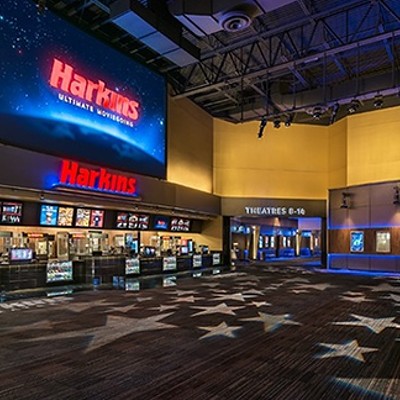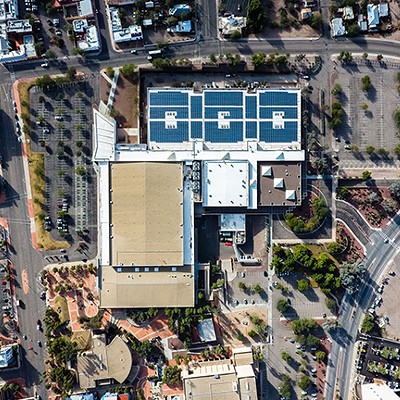There's the chance the depot could become the transportation hub for light rail if an initiative petition makes it to the ballot and passes in November. The expansion of the Fourth Avenue Trolley, as planned, will run past the depot on Pennington Street. Then there's the wishful thinking of a Tucson-to-Phoenix commuter train in the minds of those optimistic souls willing to hold their breath (the same people who think Amtrak service through Tucson may even survive).
But those ideas pale compared to what may be rolling through Tucson soon: tour trains to Copper Canyon.
"We're rolling very fast with this connection to the south," says Rio Nuevo Project Director John Updike. "We may see, in fact, tour groups able to board a train in the depot and go down to Copper Canyon as soon as a year and a half from now."
Currently, two tour magnates --Tucson-based Sierra Madre Express and Oregon-based American Orient Express--operate Copper Canyon trains out of Tucson. Both companies have to bus travelers to Nogales to board the train. But once the city and tour groups finish jumping through bureaucratic hoops, the Copper Canyon trains could be chugging out of the downtown depot on its way to Tarahumara Country.
"If that is the case, it would be the only depot in the southern part of the United States that would provide rail service to another country," says Augie Garcia, director of the Tucson-Mexico Trade Office.
The hurdles are not insurmountable, but there is work to do. One problem is actually food: Trains don't have the same commissary rights that airlines and cruise ships do in Mexico.
"You don't have any idea how complicated it is to run a sandwich--literally-- from the depot of Tucson and get it across the border without having somebody inspect the sandwich," notes Updike.
Garcia is hoping this problem will be eliminated when the new Mexican Congress takes up the issue as soon as September.
"On the Mexican side, one of the things we're working on is some legislation that will provide commissary rights to railroads," says Garcia.
As far as the actual rail route goes, there is only about a quarter-mile of track on the Union Pacific line between Tucson and the Nogales that requires any work. UP has been willing to work with the city on the project as long as freight continues to move smoothly. One needed upgrade involves building "sidings," areas of tracks where the passenger trains can pull off to allow freight trains to move in a timely fashion.
The other concern is liability.
"Anyone who would want to utilize the rail lines for Union Pacific would have to post somewhere around a $200 to $300 million insurance policy," says Garcia, who met with Union Pacific officials in Omaha two weeks ago.
Ironically, troubled Amtrak is the likely source to piggyback onto their insurance policy.
"They're going to place certain requirements, but they're the only people that are big enough to be able to insure a project like this," says Garcia.
From an economic development point of view, those opting for the pricey, luxury Copper Canyon train "resort on wheels" tours result in more bodies and more dollars finding their way into Southern Arizona. While the groups already arrive in Tucson, with the new Marriott resort being built in the Rio Nuevo area, Garcia sees the tours--which currently come in a day early and overnight in the foothills or downtown--spending more time and money in the city's downtown core area.
And it's no small number of bodies and dollars. While American Orient Express runs four trains per year, Tucson-based Sierra Madre Express not only books 10 tours a year with 35 to 40 people per trip paying over $3,100 per double occupancy, they charter another 16 to 20 trains a year through Maine-based Tauck Tours.
"They sell us all over the world," says Arturo Ochoa, operations director for Sierra Madre Express.
According to Ochoa, Sierra Madre Express is so optimistic about the project that they have already made arrangements to lease space at the new depot.
Both Garcia and Updike note that there are still more groups on both sides of the border interested in the rail connection to the south--even journeying all the way to Mexico's cruise-ship port cities.
"We want to take it a step further," says Updike. "That's why, I think, 10 years from now (Tucson's depot) could be a very important spot."












